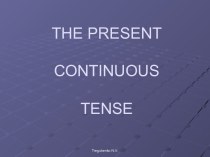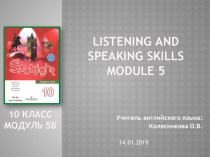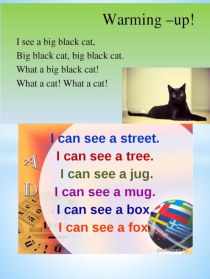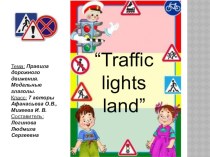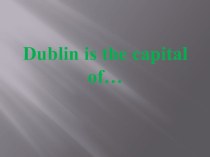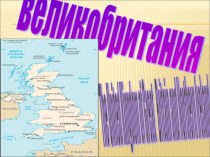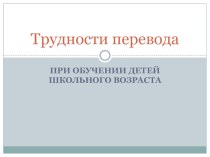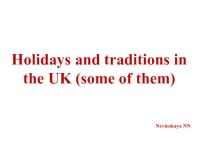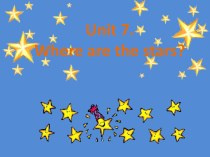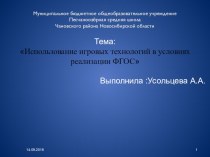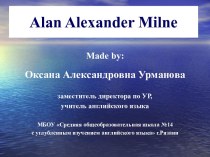- Главная
- Разное
- Бизнес и предпринимательство
- Образование
- Развлечения
- Государство
- Спорт
- Графика
- Культурология
- Еда и кулинария
- Лингвистика
- Религиоведение
- Черчение
- Физкультура
- ИЗО
- Психология
- Социология
- Английский язык
- Астрономия
- Алгебра
- Биология
- География
- Геометрия
- Детские презентации
- Информатика
- История
- Литература
- Маркетинг
- Математика
- Медицина
- Менеджмент
- Музыка
- МХК
- Немецкий язык
- ОБЖ
- Обществознание
- Окружающий мир
- Педагогика
- Русский язык
- Технология
- Физика
- Философия
- Химия
- Шаблоны, картинки для презентаций
- Экология
- Экономика
- Юриспруденция
Что такое findslide.org?
FindSlide.org - это сайт презентаций, докладов, шаблонов в формате PowerPoint.
Обратная связь
Email: Нажмите что бы посмотреть
Презентация на тему Differentiated nouns
Содержание
- 2. Differentiated nouns are nouns where ending -s
- 3. On the surface of semantic relations, the
- 4. However, alongside of these semantically unequivocal correlations,
- 5. This becomes clear when we take for
- 6. As a result of the comparison we
- 7. On the other hand, there are semantic
- 8. Ilyish says that “the difference between the
- 9. Some examples of differentiated nouns
- 10. Address обращение; речь; официальное выступление Addresses (уст.) ухаживание
- 11. Arm рука Arms вооружение военная служба война
- 12. Board доска Boards подмостки, сцена; сценическая профессия
- 13. Bone кость (часть скелета позвоночных) Bones скелет; костяк; человек; тело останки, мощи
- 14. Element хим. элемент элемент, составная часть Elements основы, азы непогода (ветер, дождь)
- 15. Fundamental основное правило; принцип Fundamentals основы
- 16. Gut кишка; (разг.) брюхо Guts
- 17. Head голова Heads руда лицевая сторона монеты (с изображением головы), орёл
- 18. Heart сердце, душа Hearts черви (масть)
- 19. ill вред, зло ills неприятности, проблемы
- 20. iron железо irons кандалы, оковы
- 21. Kennel собачья конура свора собак Kennels псарня; собачий питомник
- 22. Land земля, суша почва страна; государство Lands поместья
- 23. Legality законность; легальность следование закону Legalities обязательства, налагаемые законом
- 24. Letter буква письмо Letters литература
- 25. Liberty свобода Liberties (юр.) вольности, привилегии
- 26. Light свет; освещение Lights мнение, оценка; система принципов
- 27. Line линия, черта, штрих строка контур экватор Lines план, чертеж строй (солдат) стихи, поэзия
- 28. Manner манера, поведение Manners воспитанность, умение себя вести
- 29. Occasion случай, событие Occasions (уст.) дела
- 30. Point точка, пункт вопрос Points достоинства, преимущества пуанты
- 31. Скачать презентацию
- 32. Похожие презентации
Differentiated nouns are nouns where ending -s (in plural number) changes the semantic meaning of a word.
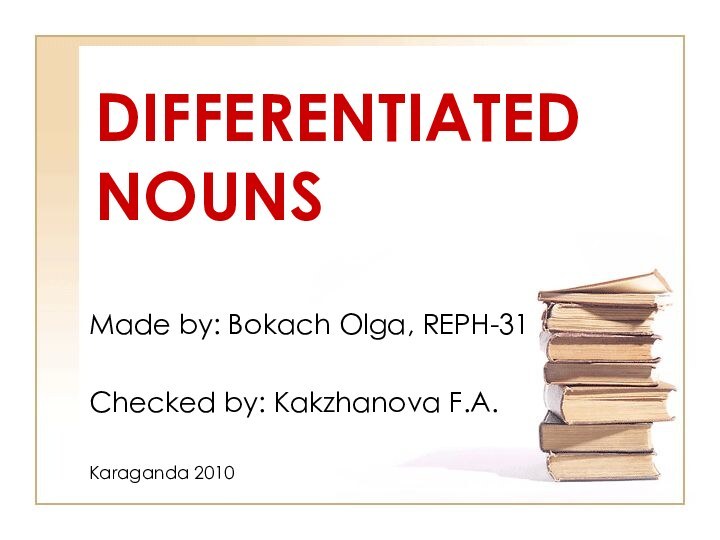
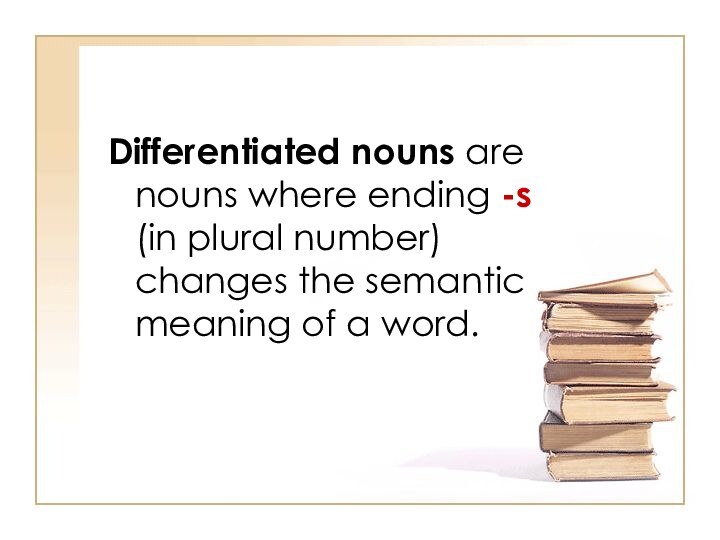

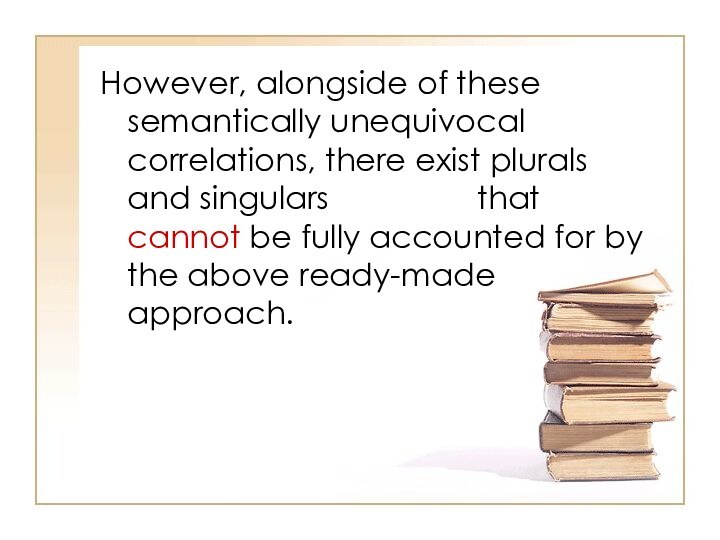



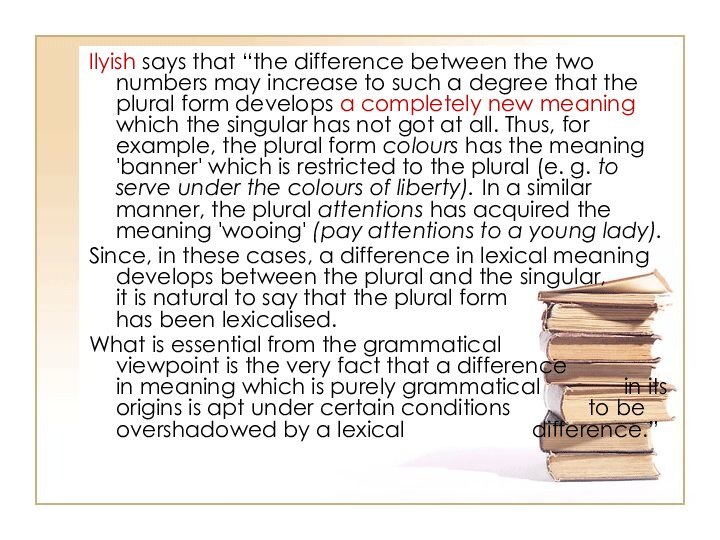







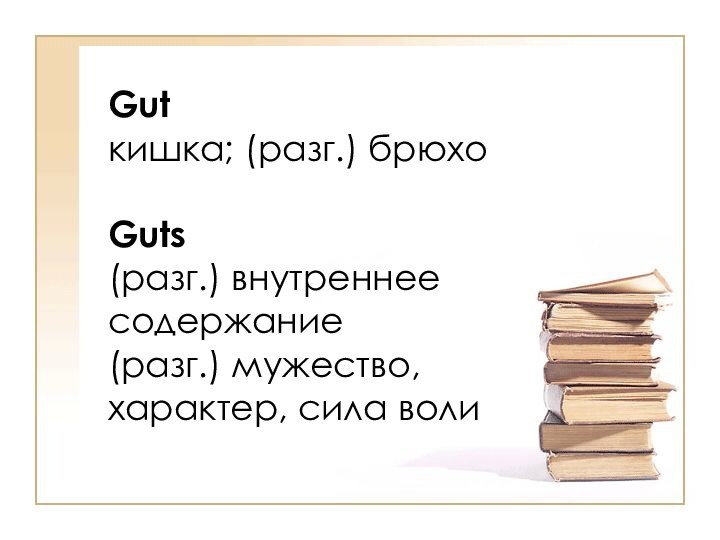
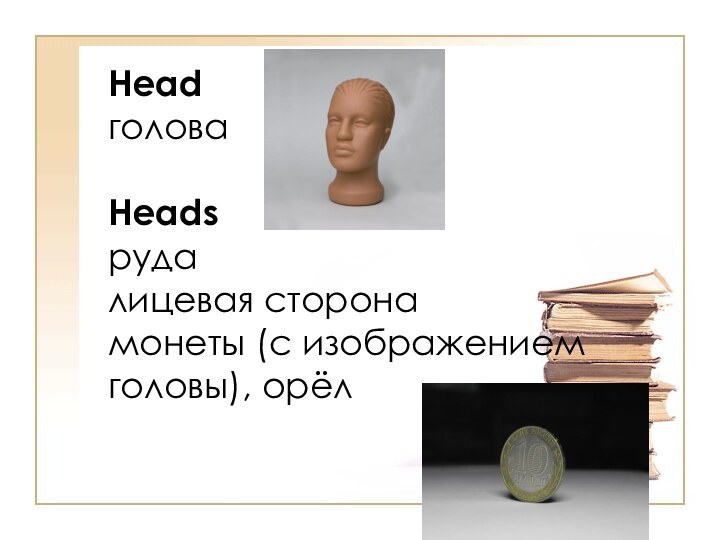





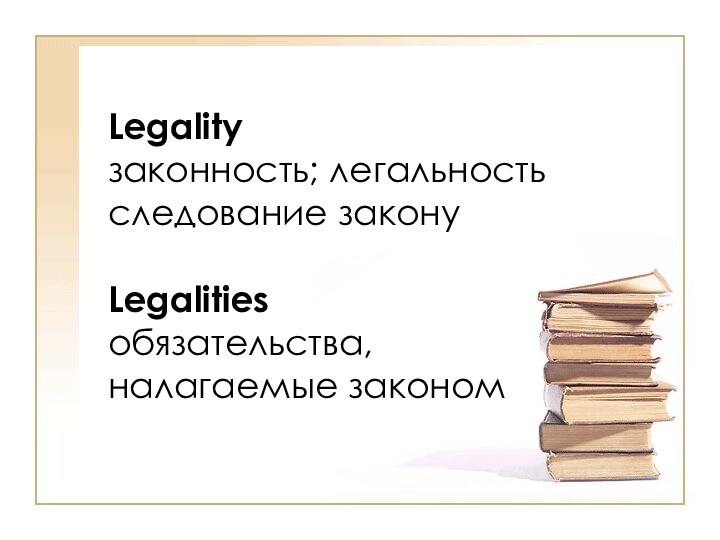





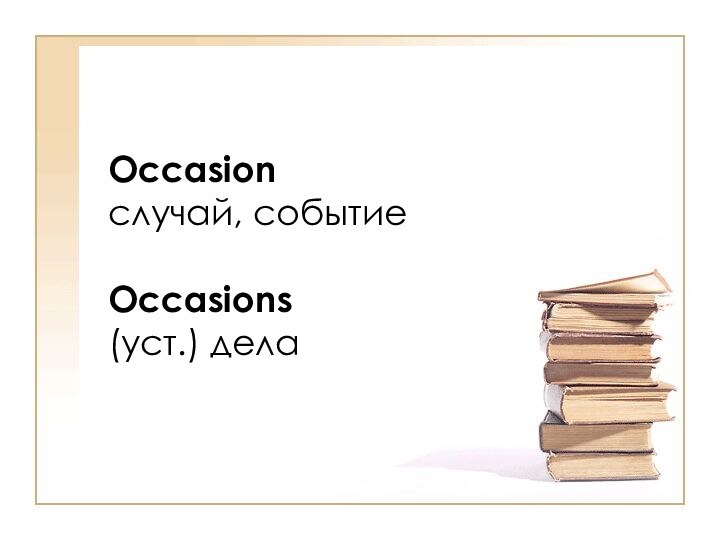
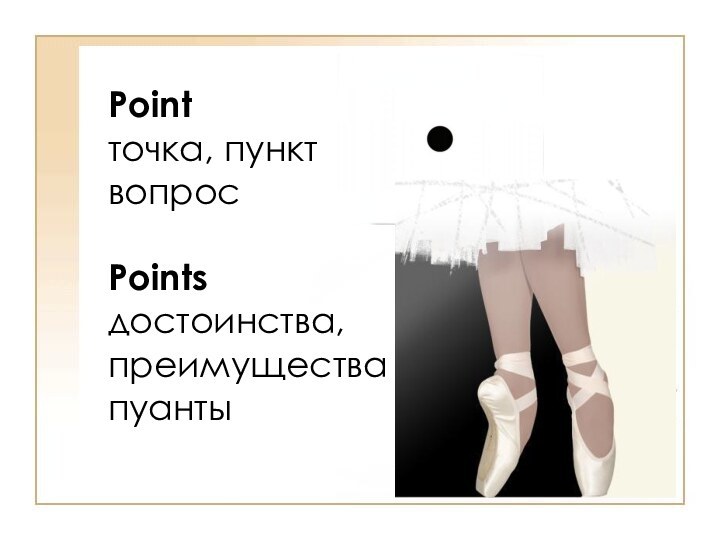
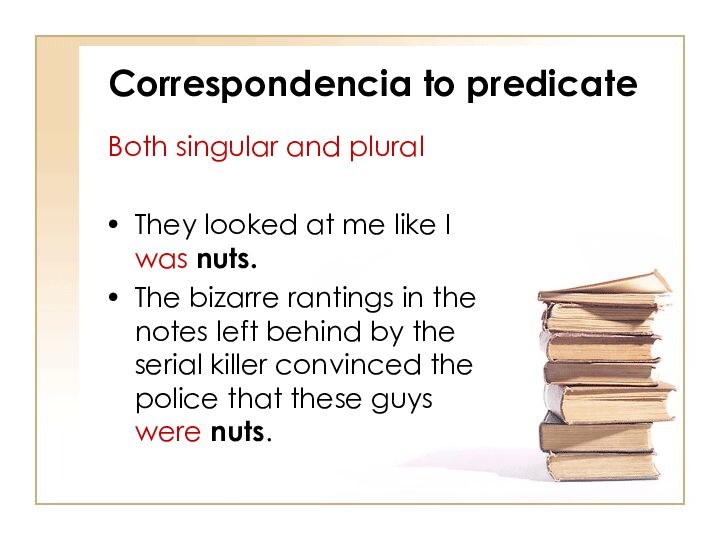
Слайд 3 On the surface of semantic relations, the meaning
of the singular will be understood as simply "one",
as opposed to the meaning of the plural as "many" in the sense of "more than one".This is apparently obvious for such correlations as book — books, lake — lakes and the like.
Слайд 4 However, alongside of these semantically unequivocal correlations, there
exist plurals and singulars that cannot
be fully accounted for by the above ready-made approach.
Слайд 5
This becomes clear when we take for comparison
such forms as
potato (one item of the vegetables) and potatoes (food), paper (material) and papers (notes or documents), sky (the vault of heaven) and skies (the same sky taken as a direct or figurative background), etc.
Слайд 6
As a result of the comparison we conclude
that the broader sememic mark of the plural, or
"plurality" in the grammatical sense, should be described as the potentially dismembering reflection of the structure of the referent,while the sememic mark of the singular will be understood as the non-dismembering reflection of the structure of the referent, i.e. the presentation of the referent in its indivisible entireness.
Слайд 7
On the other hand, there are semantic varieties
of the plural forms that differ from one another
in their plural quality as such. The extreme point of this semantic scale is marked by the lexicalisation of the plural form, i.e. by its serving as a means of rendering not specificational, but purely notional difference in meaning.Cf. colours as a "flag", attentions as "wooing", pains as "effort", quarters as "abode", etc.
Слайд 8 Ilyish says that “the difference between the two
numbers may increase to such a degree that the
plural form develops a completely new meaning which the singular has not got at all. Thus, for example, the plural form colours has the meaning 'banner' which is restricted to the plural (e. g. to serve under the colours of liberty). In a similar manner, the plural attentions has acquired the meaning 'wooing' (pay attentions to a young lady).Since, in these cases, a difference in lexical meaning develops between the plural and the singular, it is natural to say that the plural form has been lexicalised.
What is essential from the grammatical viewpoint is the very fact that a difference in meaning which is purely grammatical in its origins is apt under certain conditions to be overshadowed by a lexical difference.”

